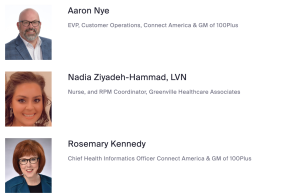More Seniors Are Embracing Telehealth – How Can We Ensure No One is Left Behind?

The COVID-19 pandemic accelerated the rapid adoption of telehealth and almost instantly became a lifeline for patients, providers, and healthcare systems. Although there were concerns over whether seniors would embrace the shift toward virtual care, studies have shown that this most vulnerable population has been highly receptive. During the height of the pandemic, nearly 30% of Medicare beneficiaries utilized telehealth, and according to AARP, even two years later, one-third of adults 50 years and older have expressed interest in using these services for themselves or a loved one.
While many seniors have embraced telehealth, still, there are many barriers to care that exist. Sadly, many seniors lack basic access to transportation, safe housing, proper nutrition, and even wireless broadband. These non-medical factors, also known as social determinants of health (SDOH), can determine up to 80% of a health outcome and can be a strong predictor of chronic disease. With a growing aging population, it’s more critical than ever to close these gaps in care by addressing the physical, emotional, and social factors that affect seniors living at home.
Connective health technologies such as personal emergency response systems (PERS) and remote patient monitoring (RPM) offer a cost-effective solution that can help deliver access to care and essential services while enabling vulnerable senior populations to remain safely in their homes. These devices help reduce hospitalizations and lower care costs while improving safety and health outcomes.
Learn more as Aaron Nye, Rosemary Kennedy, and Nadia Ziyadeh-Hammad discuss the many benefits of connective health technology and how it can be a part of the solution for seniors, patients, providers, and healthcare organizations, alike.
Speakers:

